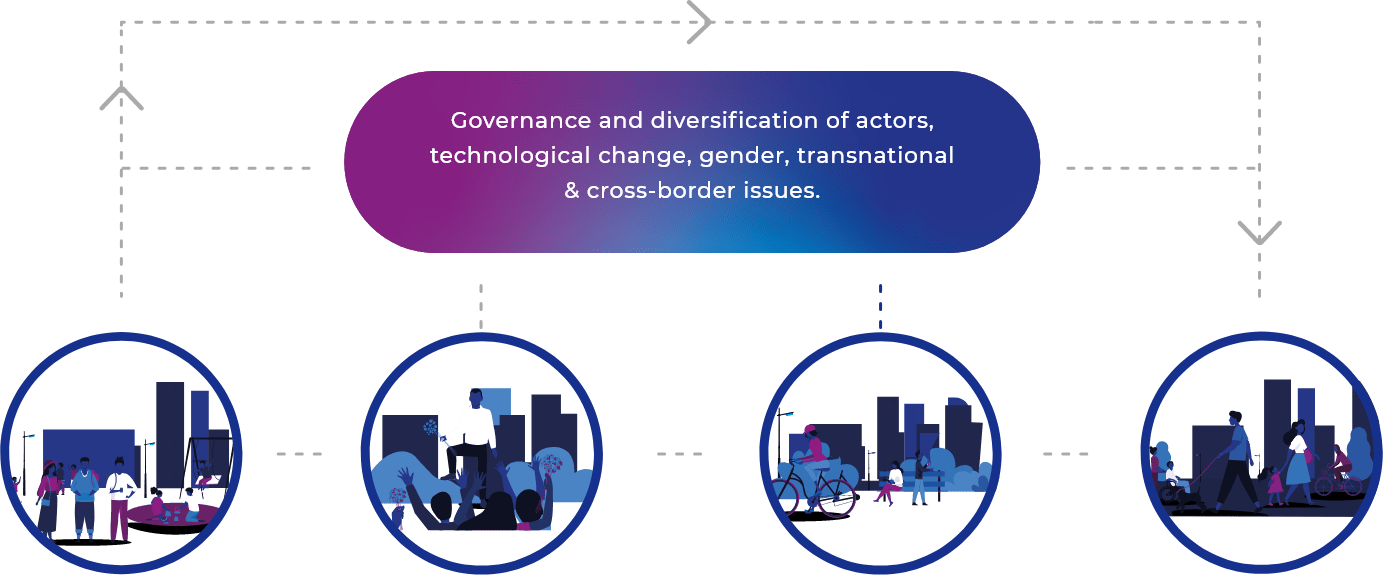





The specific objectives of the project are to:
IcARUS will focus on four areas that have been identified by local and regional authorities as their main security challenges:
Juvenile delinquency poses a significant concern for policy makers as well as for society as a whole. Multiple factors can lead young people to engage in delinquency/delinquent acts, such as the social environment, individual development, lack of confidence in the future and feelings of marginalisation. As young people constitute a vulnerable target group, local authorities have to develop comprehensive policies that promote social inclusion and avoid the social, economic and political marginalisation of youth. Instead of perceiving young people solely as potential danger to security, policy makers need to recognize them as drivers of social progress and thus include them in their crime prevention strategies. IcARUS will focus on innovative approaches to prevent juvenile delinquency that foster inter-generational dialogue and enhance social inclusion of young people.
Organised crime poses a complex challenge to local authorities, especially with regard to the globally connected nature of organised crime groups that operate and manifest themselves locally. As organised crime is constantly transforming, it is crucial for local authorities to understand how organised crime-type associations can also emerge in non-traditional areas. The prevention and reduction of organised crime demands policies and practices that strengthen the capacities of local and regional authorities to collect data and monitor organised crime activities. In addition, information-sharing and cooperation processes between local regional and national authorities must be accelerated. Comprehensive policies should focus on the empowerment of vulnerable communities that are susceptible to being targeted by organised crime. Local authorities need to develop strategies that promote a culture of legality, include initiatives representing multiple segments of society and reinforce relations between municipal institutions, local businesses and local citizens.
Public spaces are first and foremost spaces of coexistence, cohesion and a meeting point for different social groups and citizens in general. Well-designed and inclusive public spaces can match the needs of their everyday and one-time users and promote social inclusion, integration and participation. Local authorities need to assess the potential vulnerabilities of urban public spaces linked to the emergence of conflict, insecurity or negative use of these urban areas. Mitigating such vulnerabilities requires an integrated approach that fosters the integration of minorities and vulnerable communities.
Terrorism and extremist violence are a significant security threat to European countries. Tackling radicalisation at the local level requires assessing of its causes and risk factors as well as analysing local threats and potential vulnerabilities within communities. In order to prevent local radicalisation processes that lead to violent extremism, local authorities need to foster social inclusion, youth participation and dialogue. Therefore, a comprehensive local strategy to tackle radicalisation engages multiple local stakeholders, agencies and representatives of local communities.
These focus areas will also be examined in the light of four cross-thematic issues: governance and diversification of actors, technological change, gender, transnational & cross-border issues

Know what we've been up to and the latest on the European urban security frame.

